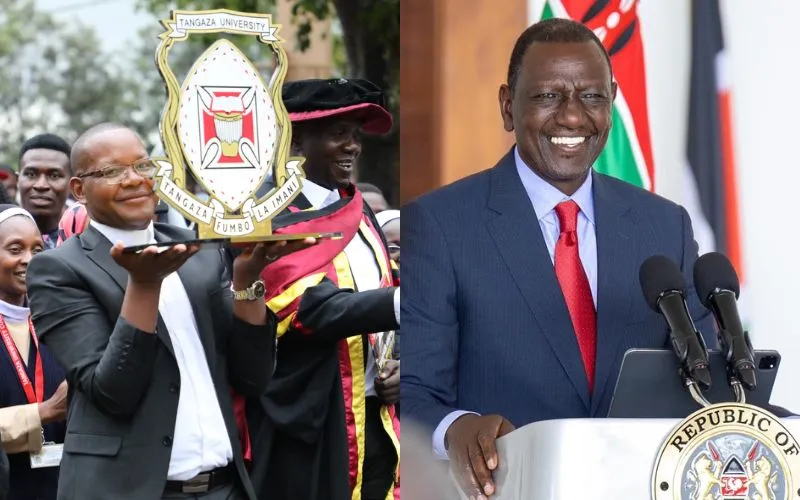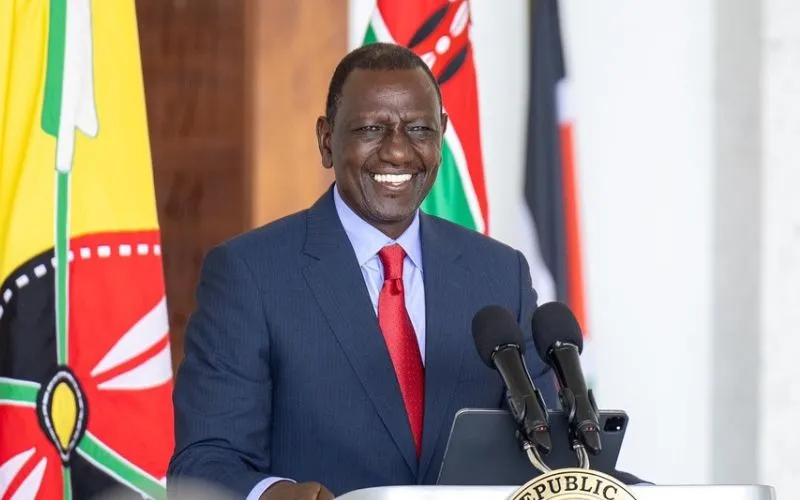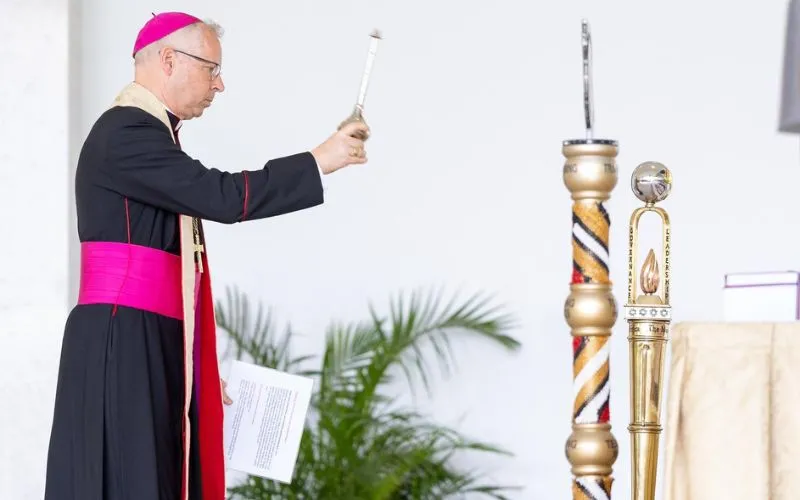It has been offering certificate, diploma, and undergraduate programs in its various institutes, a masters program in a couple of institutes, and doctoral program at the Institute of Social Transformation (IST)
The May 2 Charter award is the culmination of the process that started way back in 2013 following the change in the regulations around the governance of universities and constituent colleges as stipulated in Kenya’s University Act, 2012.
With faculty and students of well over 40 nationalities and more than 100 ICLSAL, the Karen-based TUC is a culturally diverse institution of higher learning that has “Teaching Minds, Touching Hearts, Transforming Lives” as its educational philosophy.
In his speech at the Charter award ceremony at the TUC Karen campus, the Apostolic Nuncio in Kenya and South Sudan, Archbishop Hubertus van Megen recognized the greatness of the day.
 Credit: Institute of Social Communication - Tangaza University
Credit: Institute of Social Communication - Tangaza University
(Story continues below)
“Today is the day that the Lord has made. Yes, He has given us this university, that it may be a university for all of us as Christ opened his Kingdom for all of us,” Archbishop van Megen said.
Alluding to the meaning of Tangaza, the Kiswahili word for Proclaim/Announce, the Dutch-born Vatican diplomat said that the Lord has made May 2, with the granting of the Charter, that the “announcement of the mystery of our faith will resound throughout the world through this university.”
On his part, the Vice Chancellor of TU, Fr. Prof. Patrick Mwania, thanked all who have been part of the Charter process since 2013, adding that the May 2 achievement is a “testament to the unwavering commitment of our faculty, staff, students and partners who have worked tirelessly to uphold the highest standards of academic excellence and integrity.”
“You are a special university because you also host the seminary. This indicates a holistic approach in forming and preparing human resources for the church and society,” Fr. Mwania said, and recognizing the multicultural nature of TU, added, “You have a global pillar because of the 22 congregations forming their missionaries here that will serve at the global platform.”
 Credit: Institute of Social Communication - Tangaza University
Credit: Institute of Social Communication - Tangaza University
The presence of faculty and students from dozens of country’s also gives TU “a global position in human resource development,” the Kenyan-born member of the Congregation of the Holy Spirit (Holy Ghost Fathers/Spiritans) said.
“The award of the Charter is a great milestone and indeed a testament of credible quality education that takes place here at Tangaza. It is my deep conviction that with with this honour conferred on us, we will endeavor more to sustain and improve quality culture in our teaching, knowledge creation through research and community transformation,” he further said.
“The award of the charter is surely not an end in itself, but the beginning of a relentless and vulnerable challenge as Tangaza struggles to establish a name for itself within the world of higher learning,” Fr. Mwania added.
As a chartered university, he implored that TU keeps to its “niche and grow it so that you may continue to shine among other leagues of global universities to a future filled with the continued success, growth and meaningful contributions to society.”
ACI Africa was founded in 2019. We provide free, up-to-the-minute news affecting the Catholic Church in Africa, giving particular emphasis to the words of the Holy Father and happenings of the Holy See, to any person with access to the internet. ACI Africa is proud to offer free access to its news items to Catholic dioceses, parishes, and websites, in order to increase awareness of the activities of the universal Church and to foster a sense of Catholic thought and culture in the life of every Catholic.




 Credit: State house Kenya
Credit: State house Kenya
 Credit: State House Kenya
Credit: State House Kenya Credit: Institute of Social Communication - Tangaza University
Credit: Institute of Social Communication - Tangaza University Credit: Institute of Social Communication - Tangaza University
Credit: Institute of Social Communication - Tangaza University


